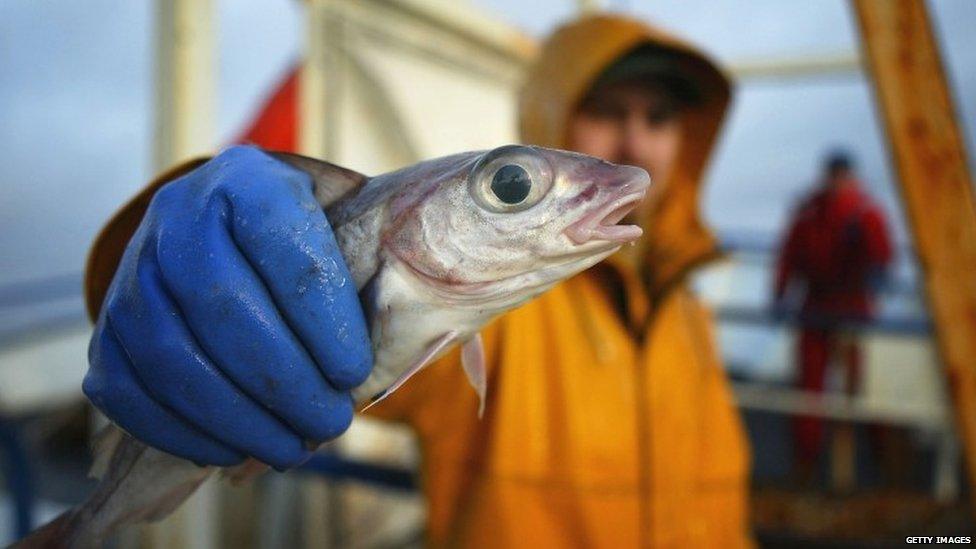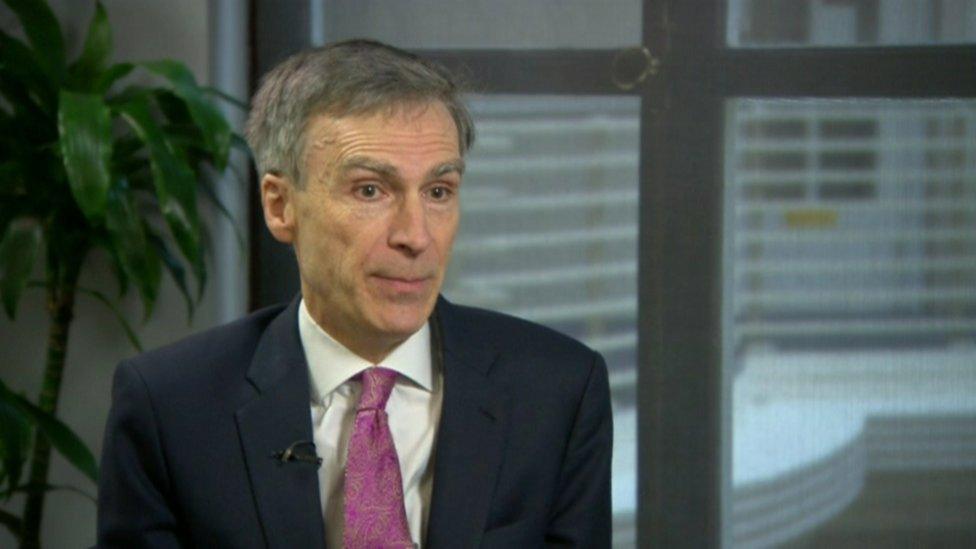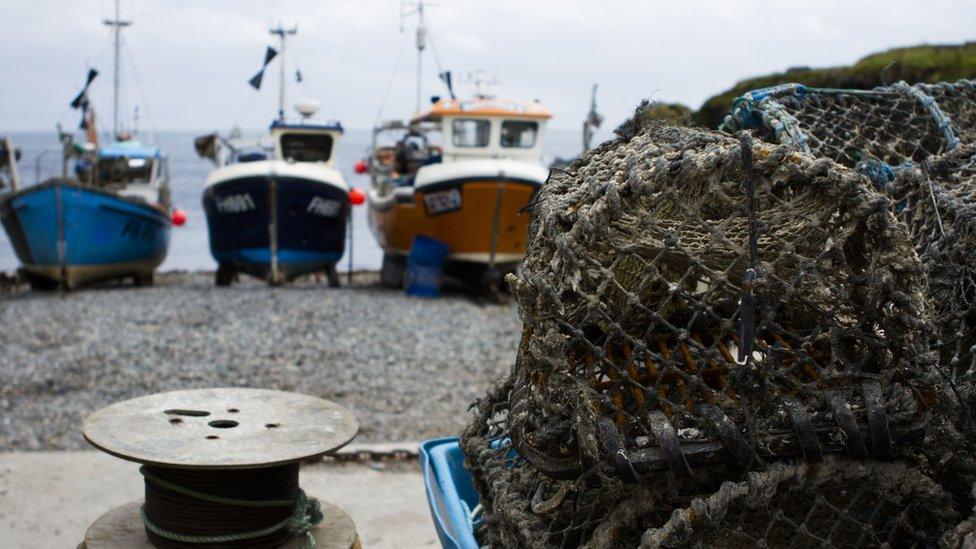Government urged to invest in NI fishing sector
- Published

The UK government has been urged to invest in Northern Ireland's "fragile" fishing sector.
The comments appear in a new report published by the Northern Ireland Affairs Committee (NIAC).
The report was released following an inquiry into the effects that Brexit will have on the fishing industry in Northern Ireland.
MPs heard evidence from fishermen and industry bodies over the course of the inquiry.
Conservative MP and Chairman of the NIAC Dr Andrew Murrison said that local fishermen believe Brexit will be a "shot in the arm" for the industry.
He added that that the process will require government support.
The report also called on the UK government to tackle "crushing manpower shortages" in the industry.
'Fragile'
Harry Wick, Chief Executive of the Northern Ireland Fish Producers Organisation, said that access to labour after Brexit will be "vital" to maintaining the local industry.
He added that access to non-European labour and greater fishing opportunities in UK waters would put the Northern Irish fleet in an economically-strong position and attract local people into the industry.
Dr Murrison said the Northern Irish fishing industry is filled with "great people and huge potential", but is still "fragile".

Conservative MP Dr Andrew Murrison chairs the cross-party committee
Around 1,700 people are employed in fishing and processing work in Northern Ireland, mostly in Kilkeel, Portavogie and Ardglass in County Down.
In 2016, workers landed 21,000 tonnes of fish, worth £31million.
However, Northern Ireland has a relatively small fishing fleet and the industry contributes less than 1% to the overall economy.
According to the inquiry, possible changes to quotas and greater access to waters will not be enough to boost the fortunes of the local fishing communities.
It added that the government should develop infrastructure in ports, allow access to labour, and help businesses access European markets after Brexit.
Fishermen in Northern Ireland largely welcomed news that the UK would leave the Common Fisheries Policy (CFP) after Brexit, believing it would allow them to land more fish.

In 2016, those employed in the fishing industry in NI landed 21,000 tonnes of fish worth £31million
The move away from the current EU system of allocating quotas was also welcomed by the Committee.
However, it wants more information on how the UK plans to redistribute fishing opportunities in UK waters post-Brexit.
Dr Murrison said : "The Government's fisheries white paper is a step in the right direction but more detail is needed on how quota allocations will change.
"The industry also needs to be reassured that the Government will be ready to support them in the unlikely and undesirable event of no deal."
'Long-running dispute'
He added: "The Government must now take action on Ireland's unilateral suspension of the Voisinage Arrangement and on the long-running dispute over Lough Foyle".
The report also outlines concerns over the potential for disagreement with the Republic of Ireland over fishing rights.
Northern Ireland fishing boats have been banned from the coastal waters of Ireland following the suspension of the Voisinage Agreement.
The report recommends that the government try to broker a deal with Ireland, but that if no agreement is reached they should discontinue access to UK waters for Irish vessels before the UK leaves the EU.
In the absence of an Executive in place at Stormont, the report concluded that the Government should be prepared to make decisions on fishing policy in Northern Ireland after Brexit.
- Published18 April 2018

- Published10 January 2018
